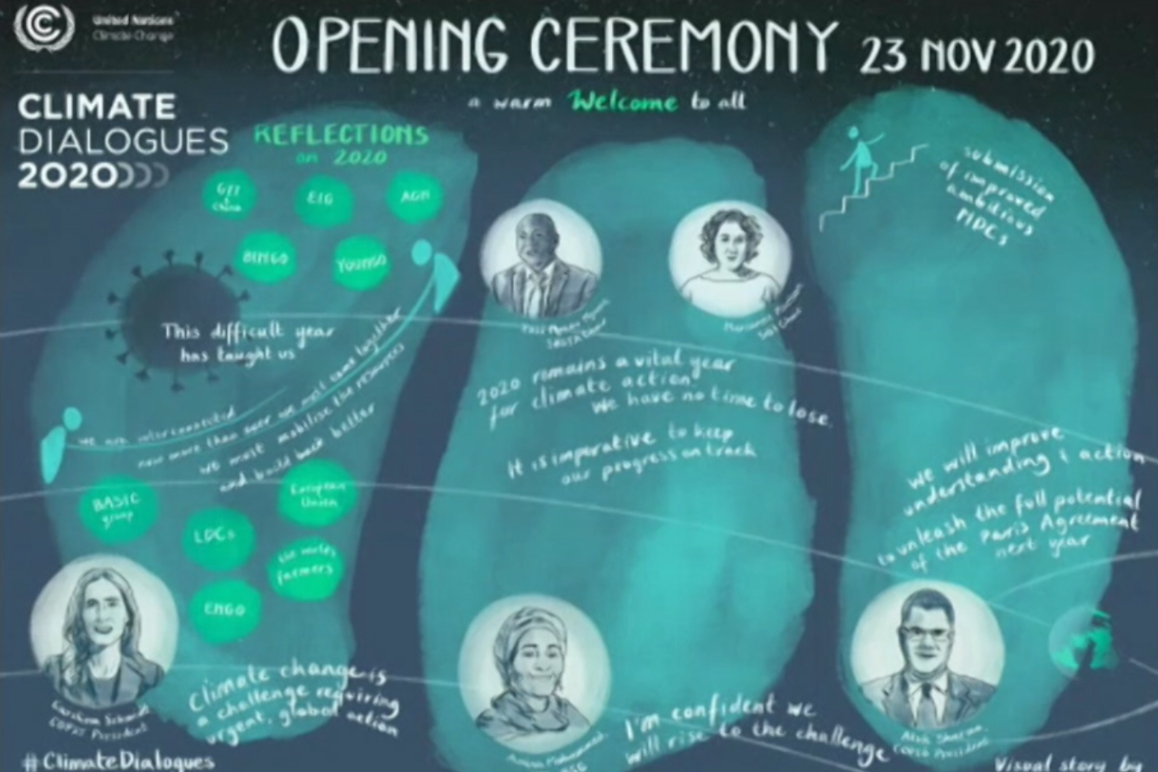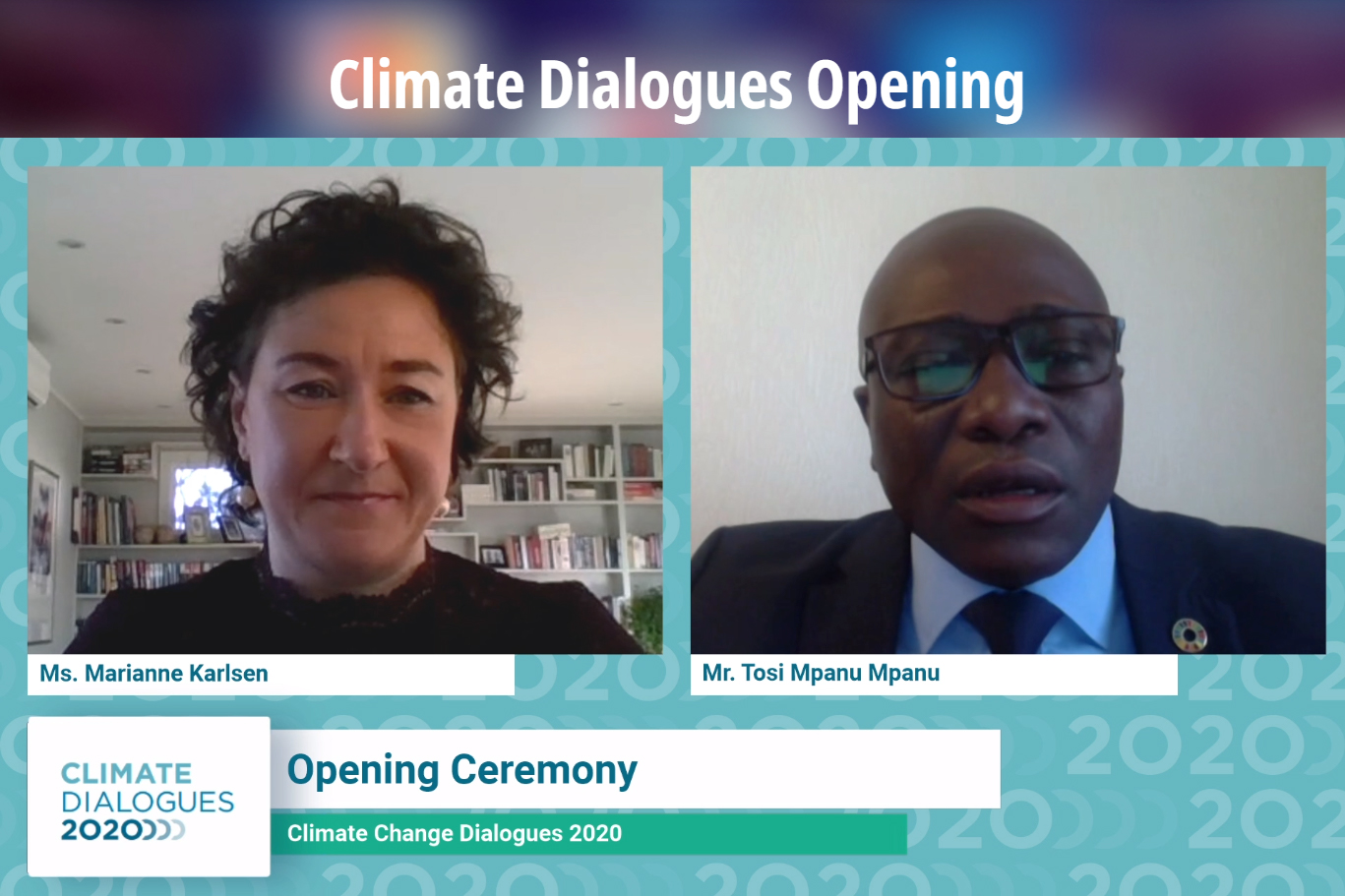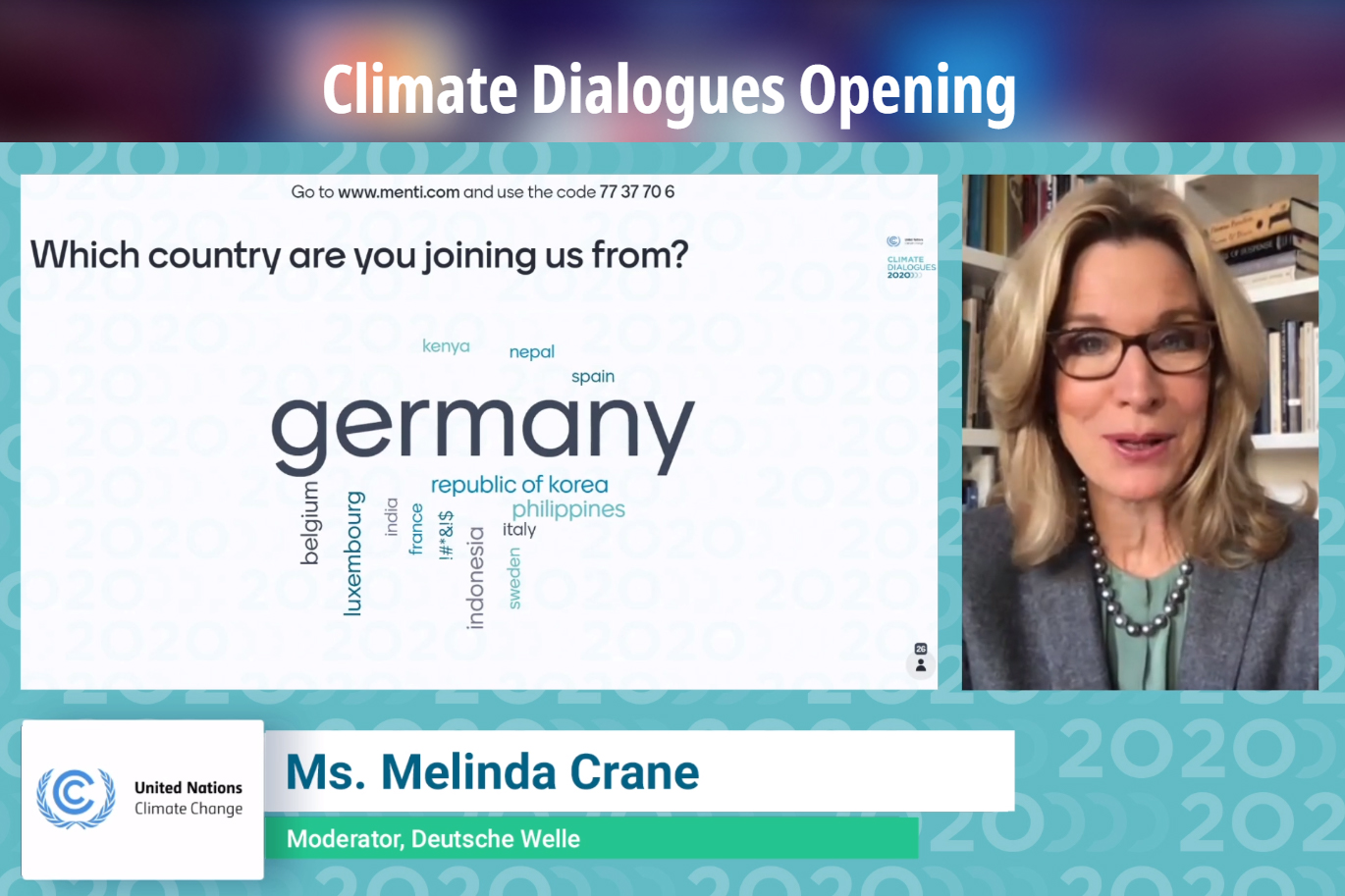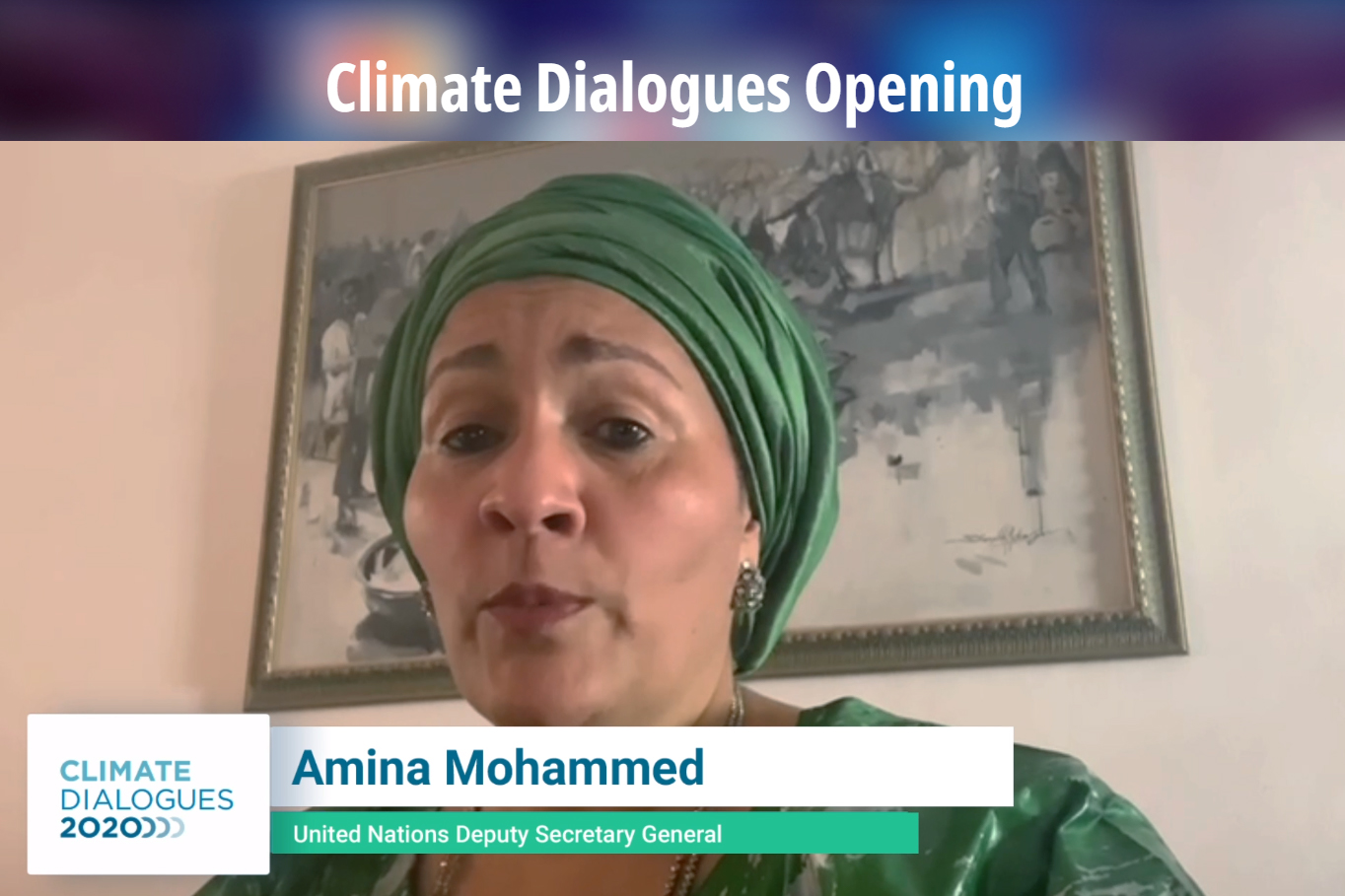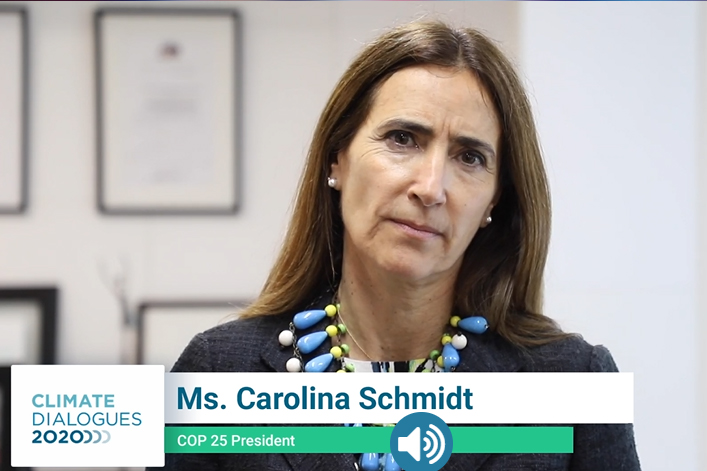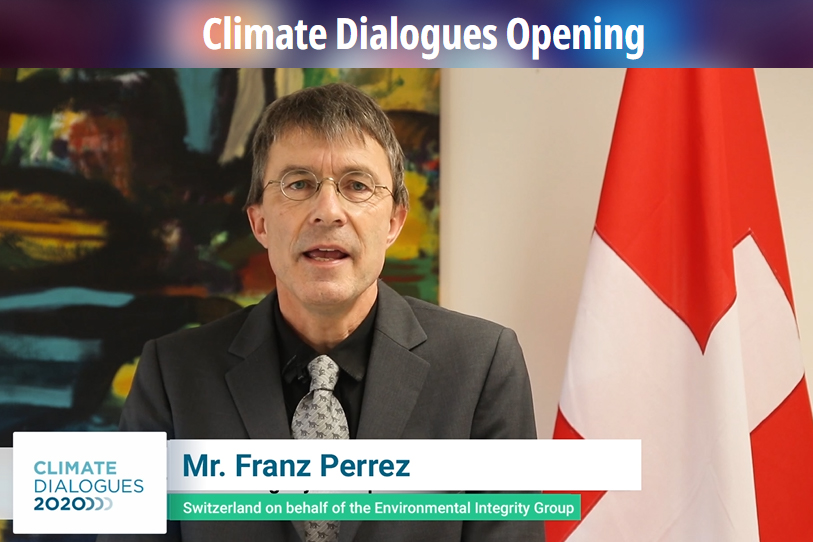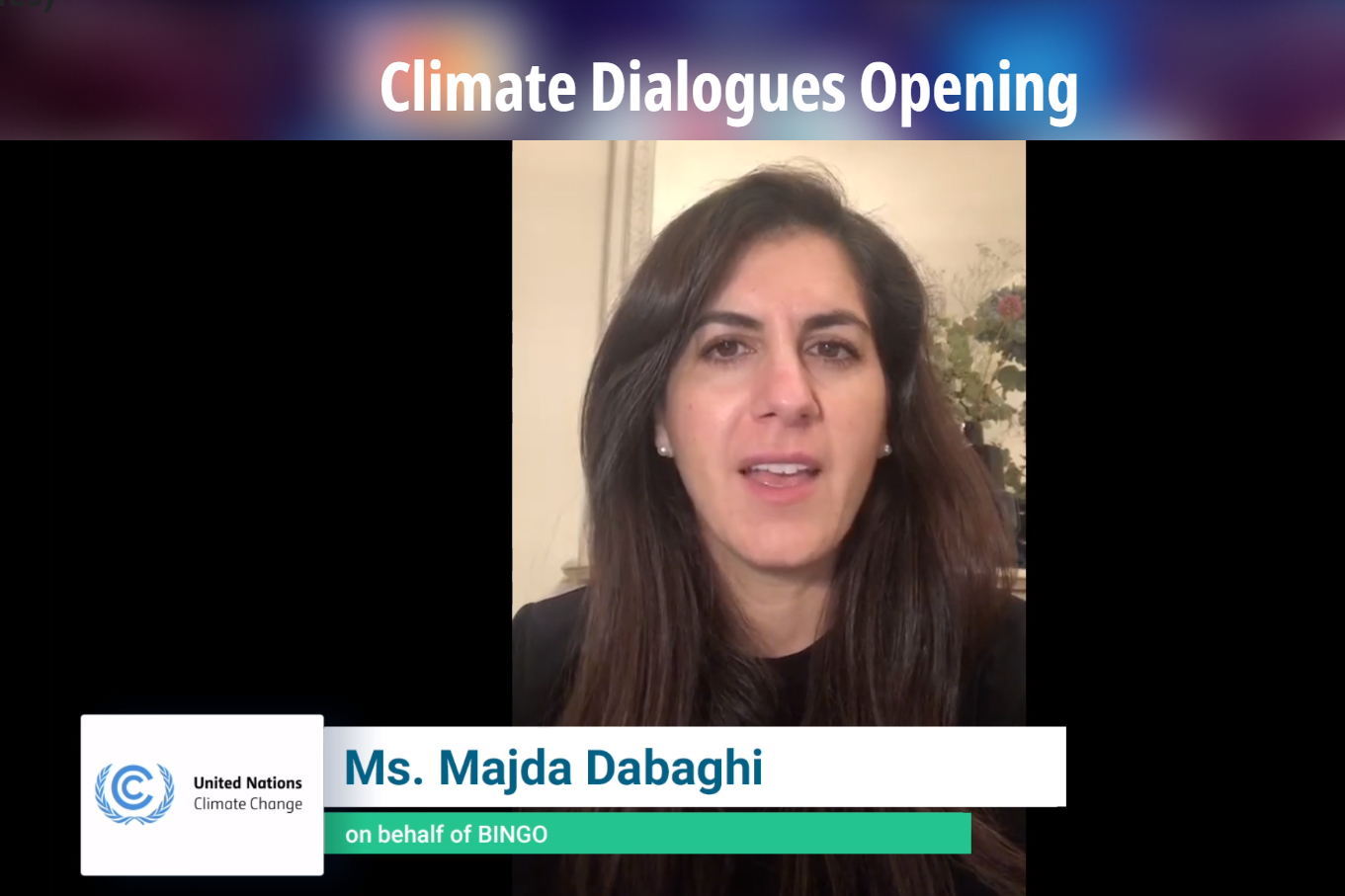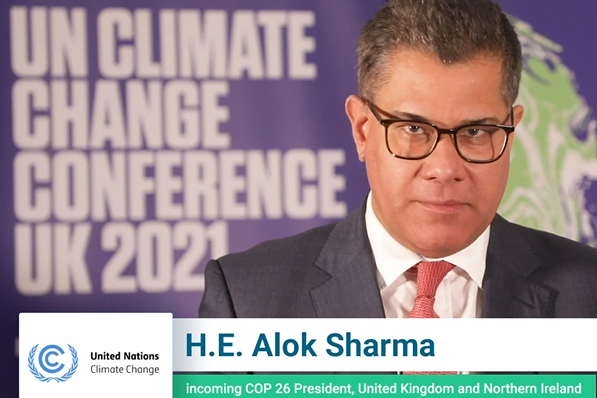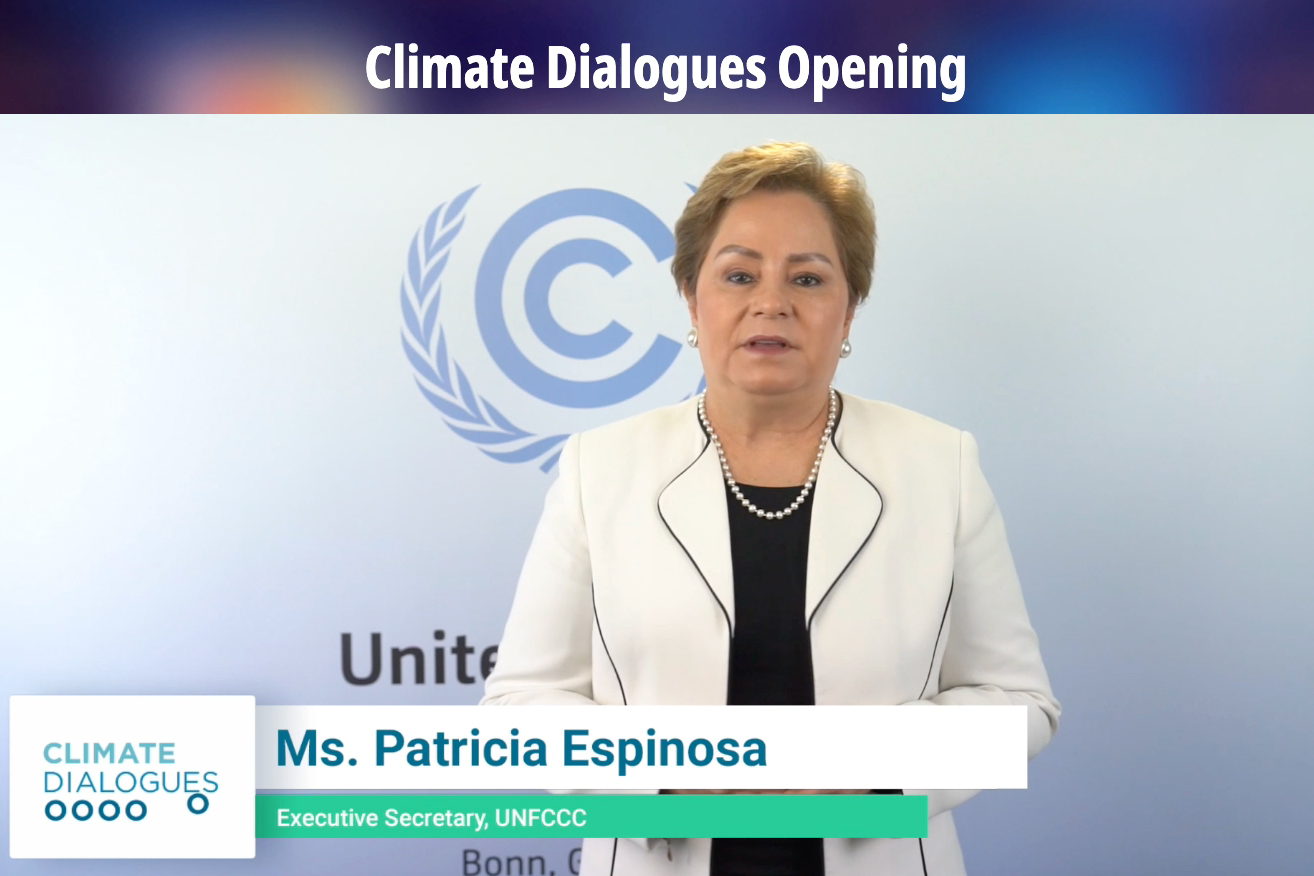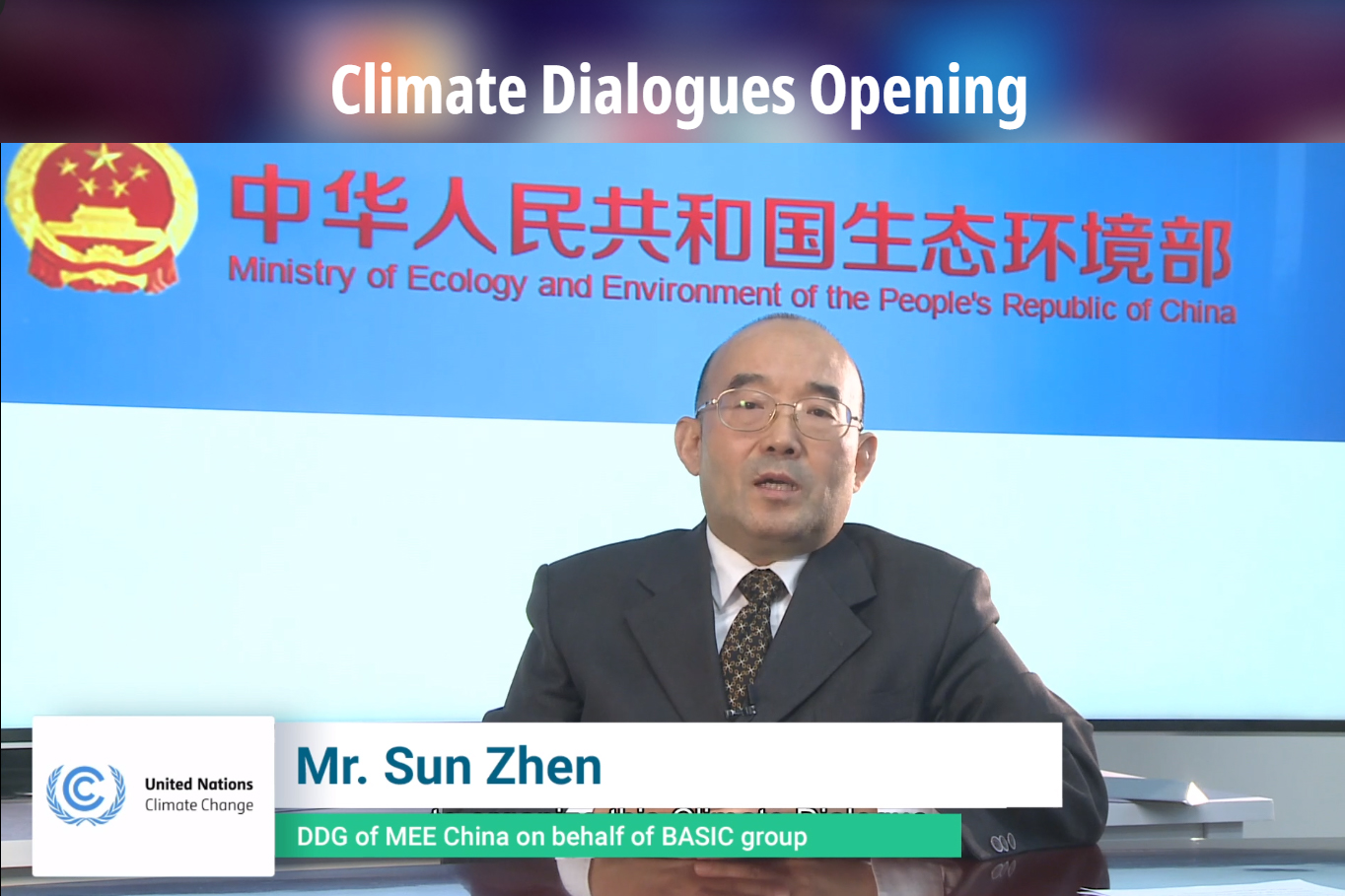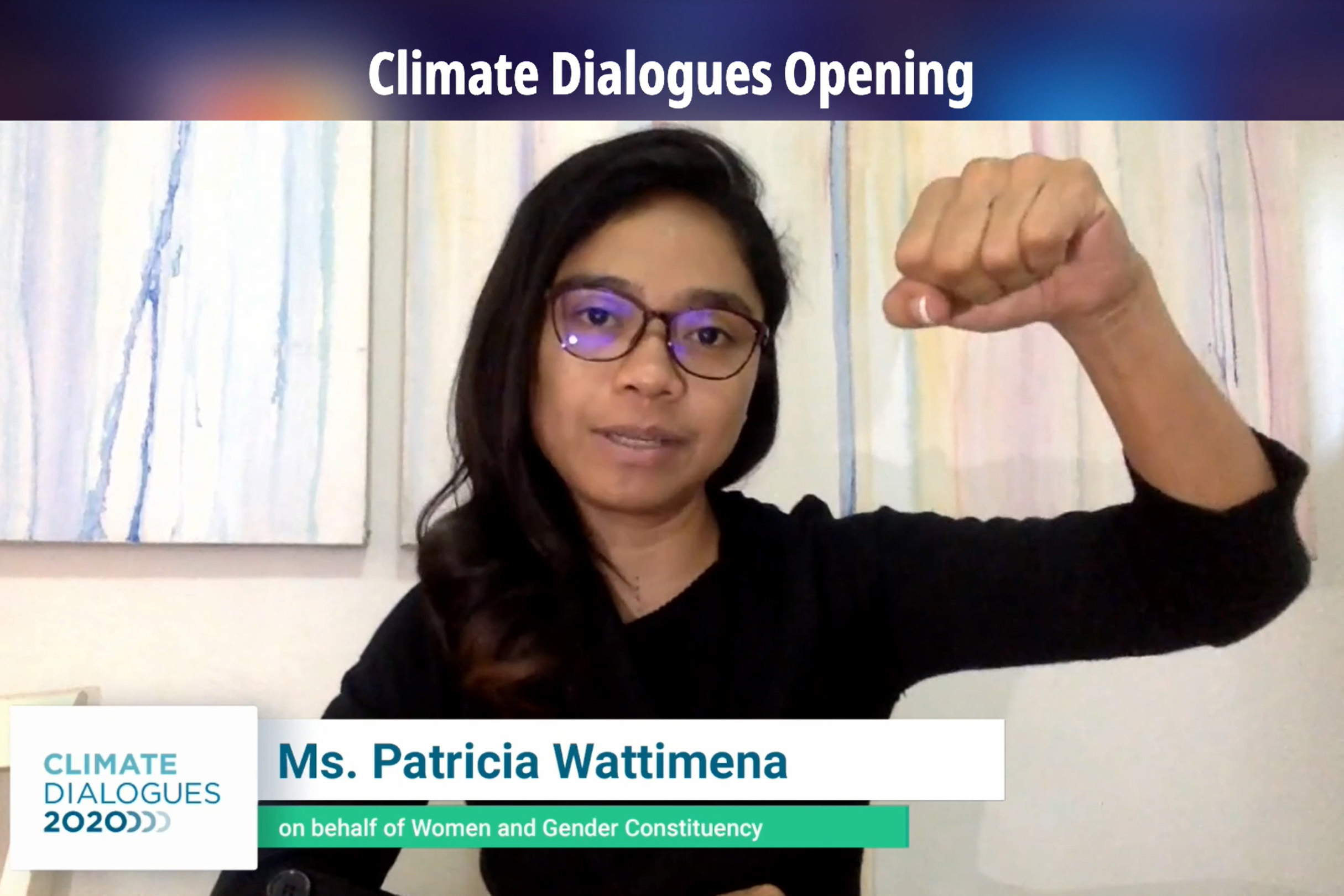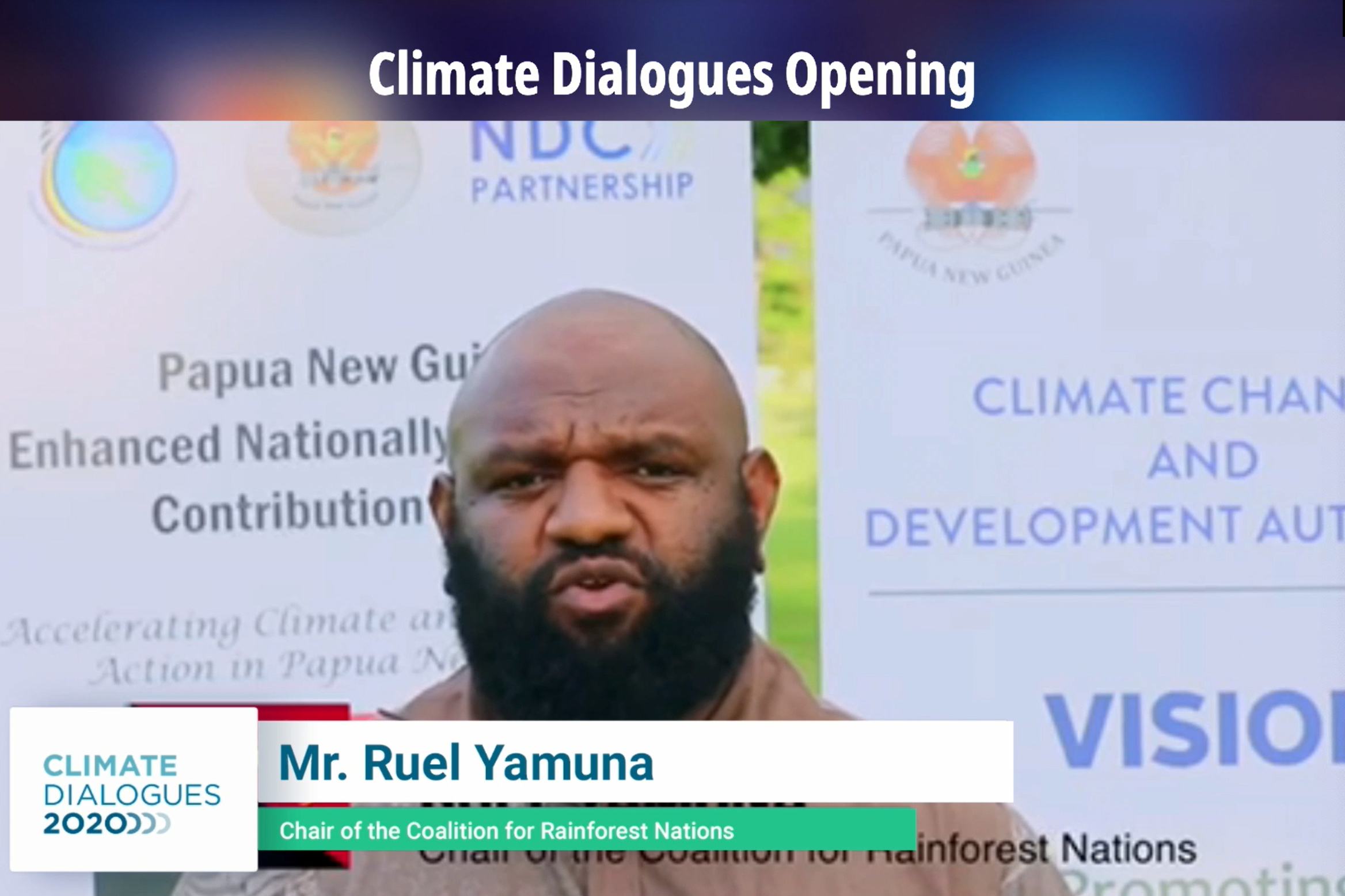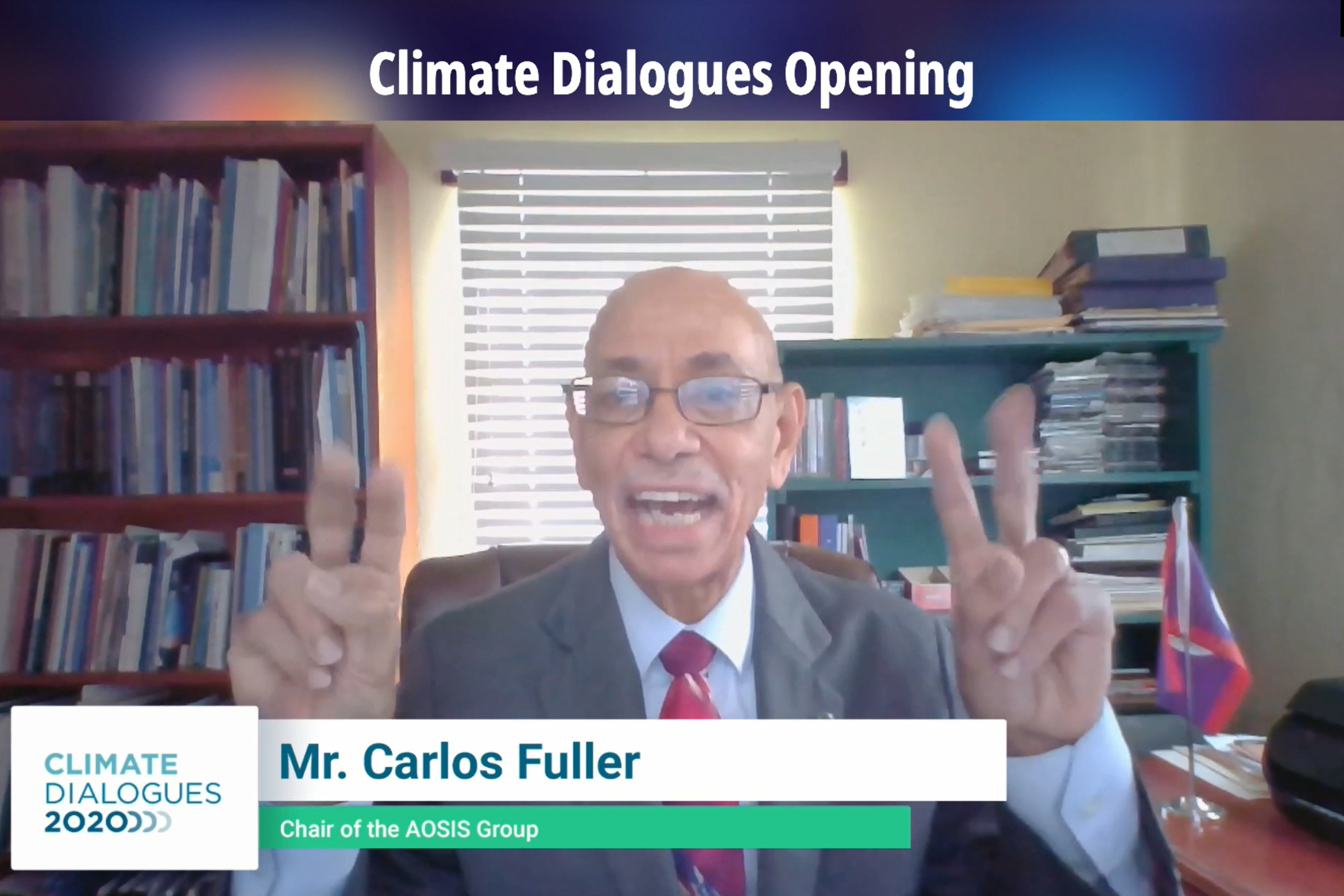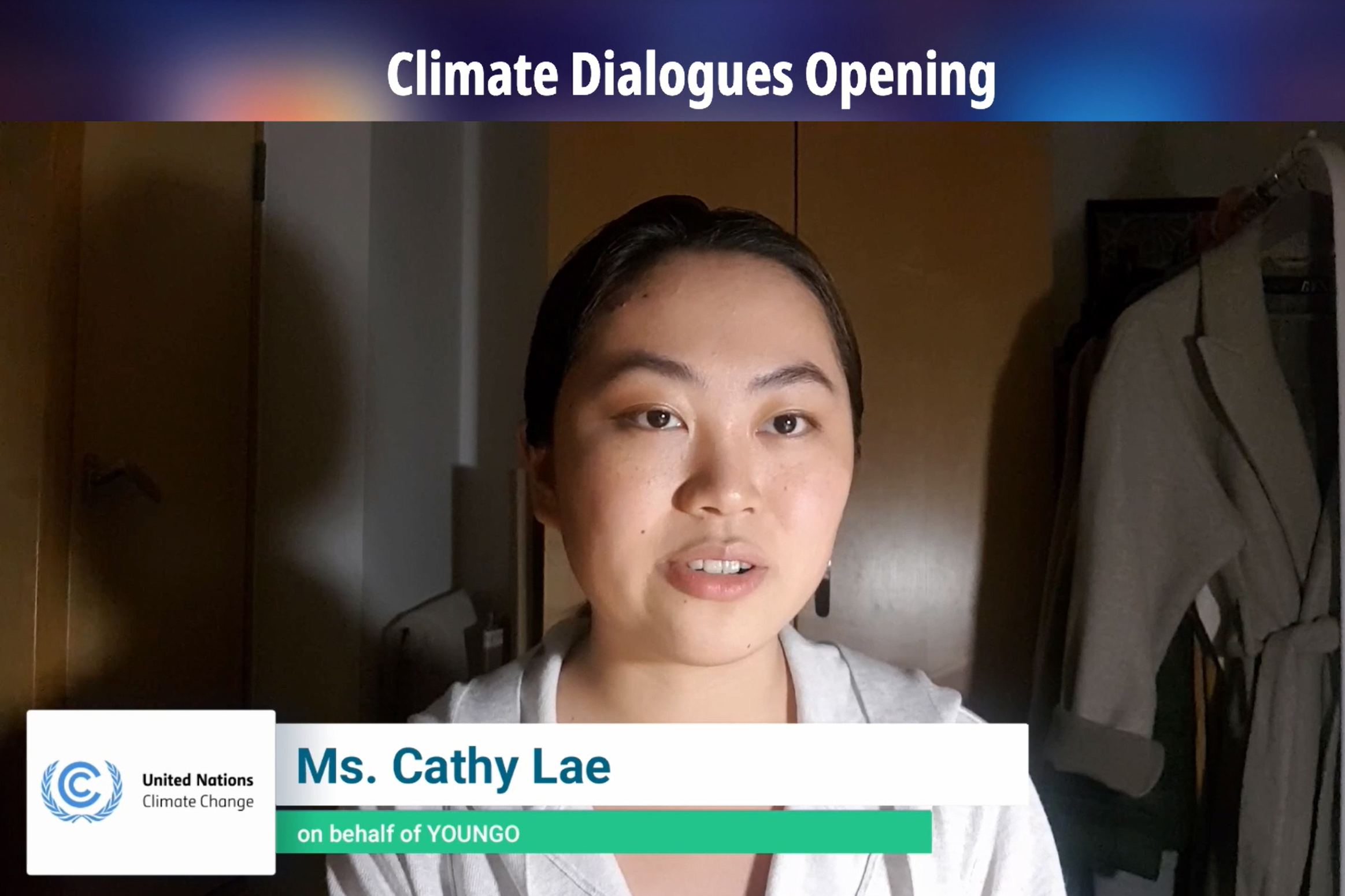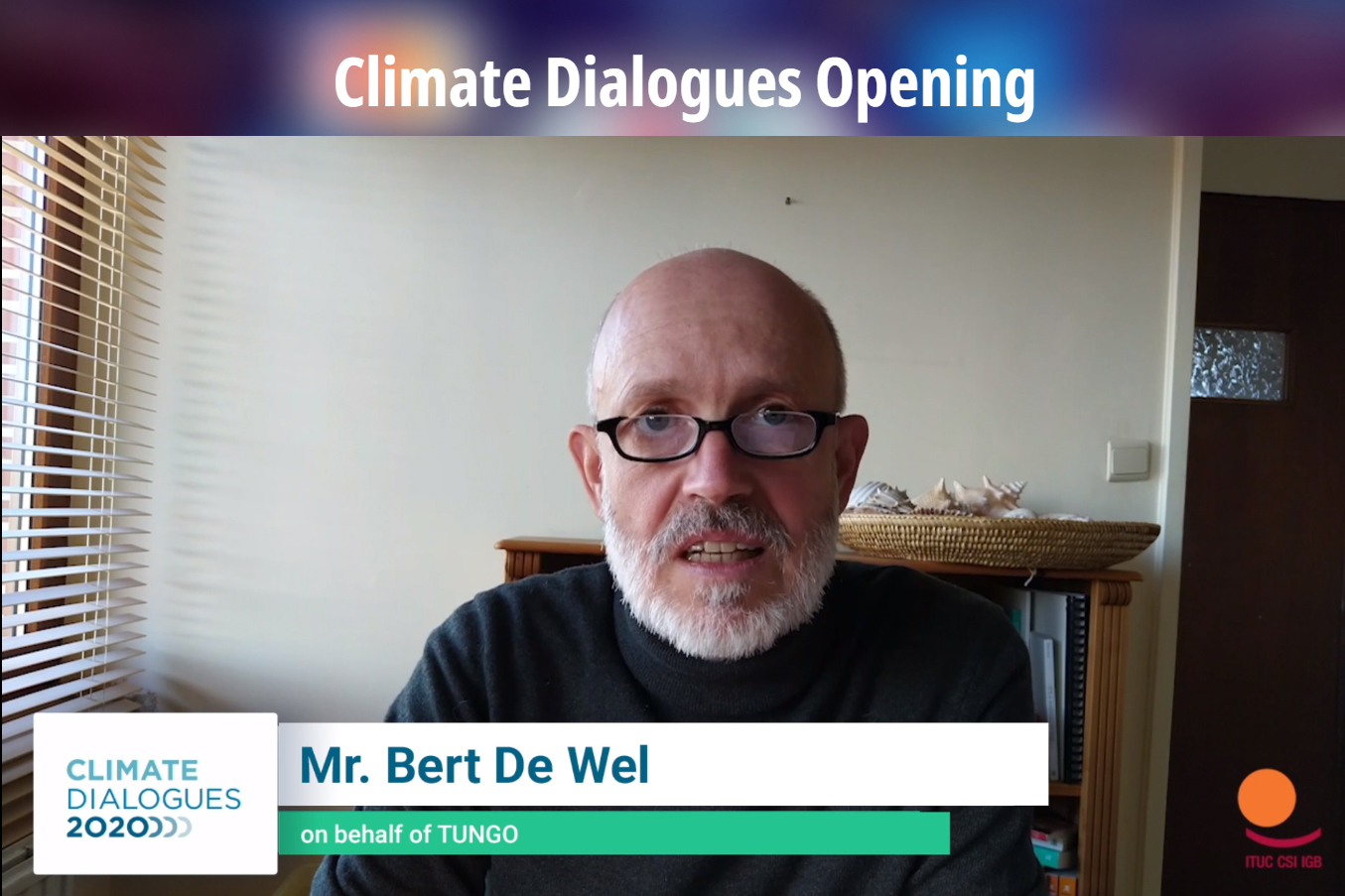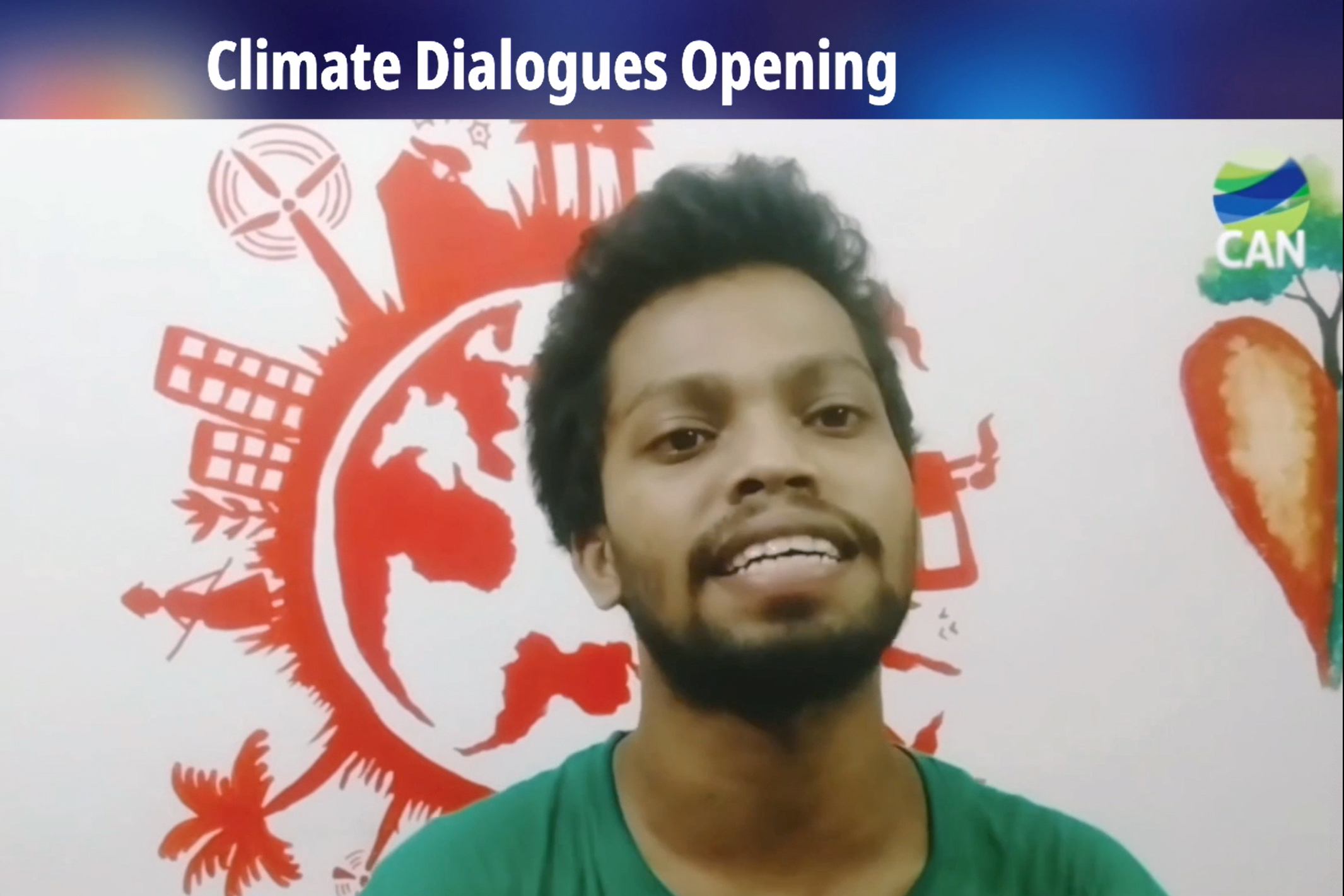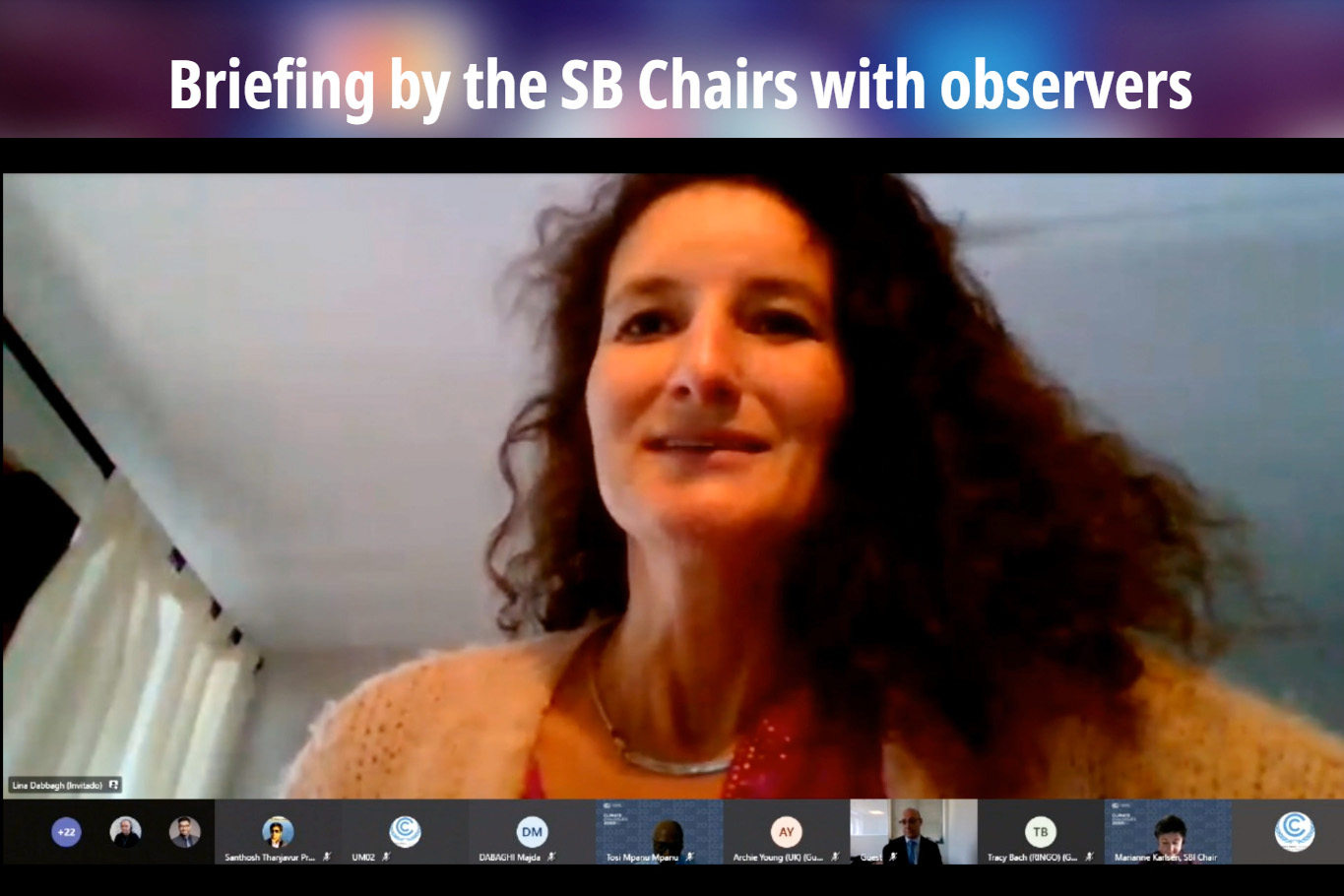UN Climate Change Dialogues 2020
23 November - 4 December 2020 | Online
Highlights for Monday, 23 November 2020
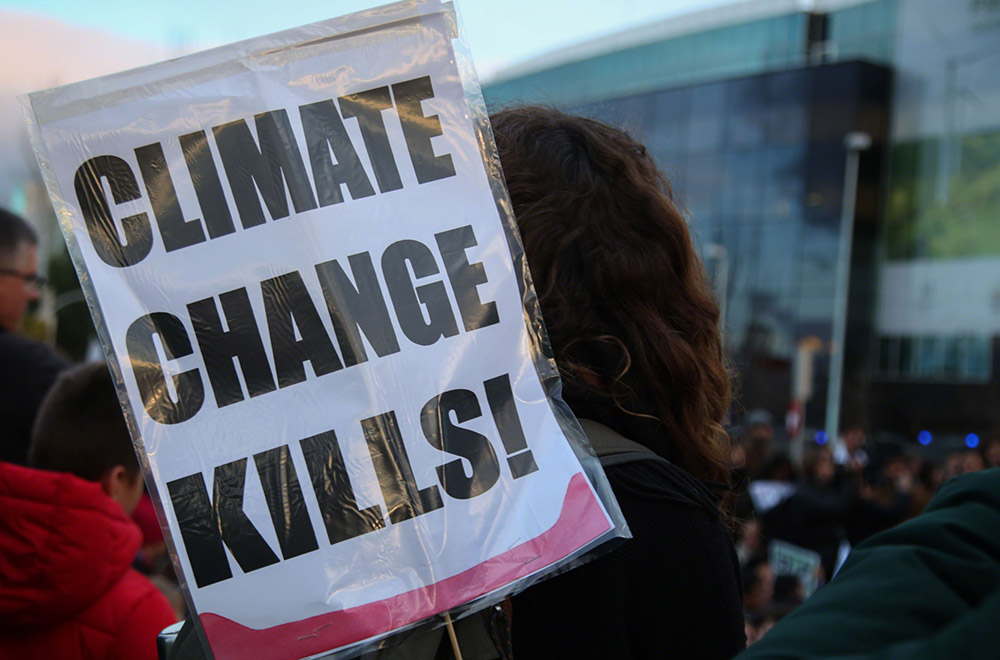
The Climate Dialogues, a series of virtual events organized by the UN Framework Convention on Climate Change (UNFCCC) Secretariat, opened Monday.
In welcoming remarks, Marianne Karlsen, Chair of the Subsidiary Body on Implementation (SBI), and Tosi Mpanu-Mpanu, Chair of the Subsidiary Body on Scientific and Technological Advice (SBSTA), said the Climate Dialogues aim to ensure that key tasks scheduled for 2020 are conducted; to reflect progress made throughout the year; and to share views and experiences.
Melinda Crane, Chief Political Correspondent, Deutsche Welle, moderated the opening session, during which participants heard high-level video interventions and messages from groups of parties and observer constituencies, followed by live interventions and a dedicated question and answer session.
Amina Mohammed, UN Deputy Secretary-General, highlighted recent "encouraging signs", including a growing number of commitments to the target of net zero emissions by 2050. Carolina Schmidt, President of the 25th Conference of Parties (COP), stressed that a sustainable economic recovery from the pandemic can help accelerate the transition to a low carbon economy. She called for boosting investments to generate large numbers of jobs while at the same time advancing the green transition. Alok Sharma, COP 26 President, highlighted that the Dialogues will help improve mutual understanding of parties’ positions and serve to identify what can be done before COP 26 to secure agreement. He noted the Climate Ambition Summit on 12 December will provide a platform for leaders to make announcements on mitigation, adaptation, and support, and called for long-term strategies towards net-zero emissions.
Questions in the interactive segment focused on, among others: how to balance the wishes of some parties for the Dialogues not to input into the work of the SBI, SBSTA, and COP, with the wishes of other parties for the dialogues to count and not duplicate future work; and how to ensure that the Dialogues are comprehensive, balanced, and meaningful. They also pertained to advancing discussions on long-term finance; options for continuing negotiations in the coming months; and lessons learned on virtual deliberations from other UN processes.
In answer to the questions, Executive Secretary Espinosa committed to addressing the situation of poor internet connectivity experienced by some countries. She stressed the need to achieve as much progress as possible regardless of conditions to reach success at COP 26. SBSTA Chair Mpanu-Mpanu said that while no substantive negotiations are taking place at the Dialogues, some of the mandated events scheduled to take place will generate a report. SBI Chair Karlsen stressed the Dialogues’ informal nature and reiterated that no reports would be generated from informal discussions between parties.
Later in the day, the Secretariat held an information event on the compilation and synthesis of the 4th biennial reports of Annex I parties, to present an update on Annex I parties’ progress towards their 2020 emission reduction targets, and the provision of financial, technological, and capacity-building support to developing country parties up to 2018. The report’s key messages include: developed countries are progressing towards achieving their 2020 emission reduction targets, but gaps remain for some countries; climate finance provision continues to increase; and support for technology development and transfer and capacity building have significantly increased in recent years. Presenters also noted that the largest share of policies and measures target the energy and transport sectors and that the share of climate-specific finance for adaptation is growing.
The third event of the day was an interactive dialogue with the UNFCCC’s observer constituencies. SBSTA Chair Mpanu-Mpanu underlined that 2020 has put significant strain on intergovernmental meetings, but clarified that the perspectives of observers are important to the SBI and SBSTA Chairs. Julio Cordano, for the COP 25 Presidency, pointed to the work of High-Level Champions in rallying people around examples of climate action. He stressed that transformation will take place at the level of observers and society, at that their needs must therefore be taken into account.
Observer organizations raised a number of questions related to ensuring stakeholders are “meaningfully engaged” in the process, with some noting that observers are not included evenly across all sessions. SBI Chair Karlsen pointed out that anyone can listen into the open sessions, despite a technical limit of 250 active participants. She reported that two seats per observer constituency had been allocated for the roundtable on pre-2020 ambition. Regarding the status of discussions on human rights within the Article 6 discussions, Mpanu-Mpanu stressed the process is driven by parties. He also said that the Dialogues would favour technical discussions, which are “more conducive to engagement,” and underlined the need for political guidance on other issues such as Article 6.2 (internationally transferred mitigation outcomes). In response to a question on common time frames, Karlsen said the negotiations are now at the stage where the options are quite clear, and the next step is to find a solution. To a question about COVID-19’s impact on climate negotiations, Archie Young, for the COP 26 Presidency, noted an “opportunity amongst the devastation” in “future-proofing” a “just transition” to renewable energy and adapting to climate impacts.
Executive Secretary Espinosa underlined the importance of the Dialogues in maintaining momentum, stressing that “we need a success” at COP 26 in Glasgow. She called on all participants to “be generous” in building decisions which “reflect the needs, aspirations, and concerns of everyone involved”.
Images from the Meeting
Videos from the Meeting
UNFCCC Resources
IISD/ENB Meeting Coverage
- High-level Roundtable on Climate Action, 24 September 2020, Online
- June Momentum for Climate Change, 1-10 June 2020, Online
- 52nd Session of the Intergovernmental Panel on Climate Change (IPCC-52), 24-28 February 2020, Headquarters of the UN Educational, Scientific and Cultural Organization (UNESCO), Paris, France
- Chile/Madrid Climate Change Conference, 2-15 December 2019, Madrid, Spain
- ENB Coverage of Climate Change Meetings
IISD Resources
- Subscription Page for ENB Update, SDG Update, and Peer-to-Peer Community Mailing Lists (including Climate News, SDG News, Biodiversity News, Ocean News, Forests News, Trade and Sustainable Development News, and Regional Updates)
- SDG Update Newsletter - A compilation of news, commentary and upcoming events published on the SDG Knowledge Hub
- SDG Knowledge Hub - An Online Resource Center for News and Commentary Regarding the Implementation of the United Nations’ 2030 Agenda for Sustainable Development, including all 17 Sustainable Development Goals (SDGs)

